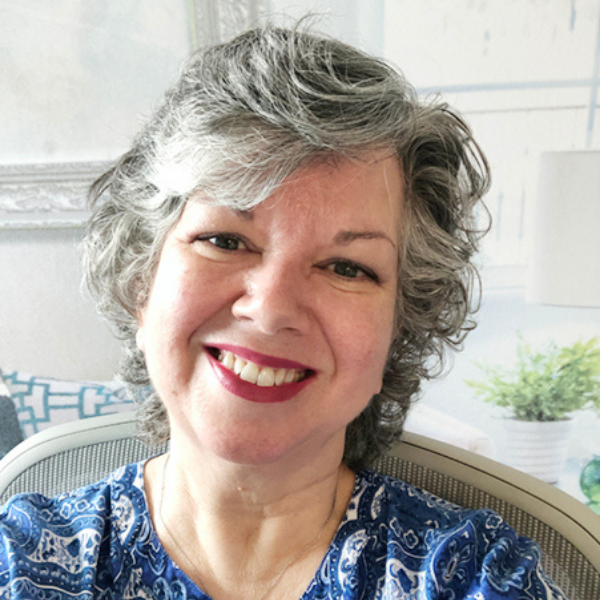The new Canadian Association of Lawyers with Disabilities aims for better inclusion

Martin Luther King, Jr. once said, “Human progress is neither automatic nor inevitable. Every step toward the goal of justice requires sacrifice, suffering, and struggle; the tireless exertions and passionate concern of dedicated individuals.”
I want to highlight two groups advancing disability justice in Canada that exemplify Dr. King’s words – Legal Leaders for Diversity and Inclusion and the Canadian Association of Lawyers with Disabilities.
Recently, Canadian Lawyer published an article about the Legal Leaders for Diversity Trust Fund, which supports Canadian law students with scholarships. Established in 2015, the fund boasts donations from general counsel and law firm managing partners nationwide, granting an impressive 87 scholarships totalling $250,000.
While not taking away from this remarkable contribution, I believe that law students with disabilities need much more. That is why I am involved with the official launch of the Canadian Association of Lawyers with Disabilities on Thursday, Oct. 27 at a free virtual event in English with captions. I encourage Equality, Diversity and Inclusion leaders at law firms to attend.
Let me now provide an overview of why this association is critical.
When I entered law school nearly 20 years ago as a mature student living with profound hearing loss, I experienced many challenges. While I met a handful of practicing lawyers with disabilities across Canada, I actively sought a community that would understand and support law students and lawyers with various disabilities, to no avail.
The reason for their absence? Perhaps there were not enough lawyers with disabilities to make it worth the organizing effort. Such arguments reinforced my view that people with disabilities are “too few to count, too many to ignore.”
What further complicates organizing a support group is that many do not feel the profession offers a safe place to disclose a disability, forcing one to “pass” as able-bodied to preserve their livelihood.
One learned not to ask for accommodations or display any perceived weaknesses; suppress your right to live with authenticity.
As a long-time active member of the Law Society of Ontario and the Canadian and Ontario Bar Associations, I have participated on committees advancing EDI goals. I have also seen the growth of equity-deserving affinity associations: the Canadian Association of Black Lawyers (CABL), the Indigenous Bar Association, the South Asian Bar Association of Toronto (SABA), and the Federation of Asian Canadian Lawyers Ontario (FACL), to name a few. Affinity law associations provide a valuable network of law professionals dedicated to the cultivation and celebration of lawyers in Canada, supported by advocacy, community outreach, awards, a speaker series, mentorship, events, and more.
Over the past few years, COVID has demonstrated that we are not all “in the same boat,” giving rise to the urgent need to address disparities and repair generational wrongs. As a result, there has been a proliferation of EDI professionals within large law firms focusing on the inclusion of Black, Indigenous, and people of colour (BIPOC). However, I am frustrated by how often disability remains absent from EDI conversations within the legal profession and broader sectors; it would appear one forgets that disability is a form of diversity.
Without question, scholarships help by recognizing our need for financial support to offset the real cost of disability. However, the legal profession must better support law students and lawyers with disabilities. My thoughts are informed by my long-standing mentorship of law students with disabilities and my experiences.
Many conversations I have had with lawyers with disabilities reinforce the challenges that plague us within the profession: rampant ableism that excludes us from job opportunities, the prevalence of tokenism, the lack of understanding about accommodation supports, the pressure to achieve billable-hour targets when our disability may slow us down, and on it goes.
The result has been that many lawyers with disabilities become sole practitioners with all its inherent challenges - the most predominant being isolation - or congregate in government, where accommodation needs are most likely to be met.
According to the Law Society of Ontario’s 2020 Lawyer Annual Report, 40 percent of lawyers with disabilities are sole practitioners or working in government, while more than 20 percent have other employment or are retired/not working. That means most lawyers with disabilities are not working in more lucrative private or in-house practice; the inverse is true of those without disabilities.
My long-held belief is that a national association of lawyers with disabilities, supported by law schools and the legal profession, would provide critical help at every stage of one’s legal career. It is encouraging to feel the excitement from lawyers with disabilities in response to a national association as we strive to normalize disability. It will also be gratifying to prove nay-sayers wrong by proving that there are more than enough Canadian lawyers with disabilities to make this a worthwhile endeavour.
The UN International Day of Persons with Disabilities is celebrated annually on December 3. I encourage those in a position to hire lawyers to consider the added value of employing a lawyer with a disability. Also, in the lead-up to December 3rd, hire a lawyer with a disability to address your staff to create awareness. Together, we can create change.
Lorin MacDonald, JD, LSM, is a human rights lawyer and disability/accessibility advocate living in Toronto. She was one of Canadian Lawyer's 2021 Top 25 Most Influential Lawyers in the Human Rights category. This year, the Law Society of Ontario honoured Lorin with its Law Society Medal, and she was inducted into the Canadian Disability Hall of Fame.











